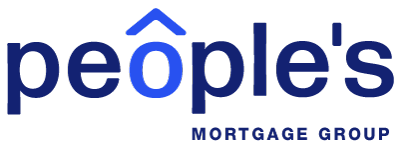
Frequently Asked Questions

What is a fixed rate mortgage?
The interest rate on a fixed- rate mortgage stays constant for the term of the mortgage, providing the borrower a sense of security knowing the exact payment for the entirety of the mortgage term. What is a variable rate mortgage?
The interest on a variable-rate mortgage is directly connected to the prime rate. As the prime rate increases, the interest rate will decrease of increase accordingly.
What is a conventional mortgage?
A conventional mortgage is when a borrower puts 20% or more down on their purchase and where the loan-to-value is 80% or less. What is mortgage loan insurance?
A mortgage loan insurance aka Mortgage Default Insurance is an insurance policy required on mortgages where the loan to value is greater than 80%. The insurance provides protection for the lender against mortgage default. The insurance is typically added onto the mortgage amount.
What is a down payment?
A down payment is the percentage of the purchase price of the property that the borrower provides. It guarantees that you have a certain amount of equity in the property that you are purchasing, and it is a good indication of your financial commitment to the mortgage.What is a down payment requirement?
Minimum down payment for a purchase price of $500,000 or less is 5%.For a purchase price of greater than $500,000, its 5% for the amount up to $500,000 and 10% for the remaining amount exceeding $500,000, For example if the purchase price is $700,000 minimum down payment would be: 5% of $500,000 = $25,000 plus 10%of the remaining $200,000 = $20,000 bringing the total down payment to $45,000. For purchases that are $1 million or more, the minimum required down payment is 20% of the purchase price.
What are the monthly cost of owning a home?
Some of the monthly costs associated with owning a home are:Mortgage Payments: This consists of principal and interest payments paid to the lender for your mortgage loan. Some lenders offer interest only payments as well.Property Tax: This is payment made directly to the municipality where your home is located. You will receive an annual property tax bill from your municipality which will outline the total amount of property tax levied for the year and payment periods.Condo Fees/HOA: These are fees that you have to pay when you own a condo unit or a town home that is part of a condo corporation. These fees covers the maintenance of the unit and the building, and the amenities that are available. Please keep in mind some associated condo fees cover necessities such as water, hydro and heat while others do not.Living costs: Water, hydro and heat are basic living costs associated with homeownership. The costs will vary depending on your consumption. As mentioned earlier some condo fees cover water, hydro and heat, while some do not. What are the requirements to afford a home?
The basic requirements of owning a home is a steady source of income to pay for the mortgage loan and the regular monthly costs associated with owning a property. In addition to income, you should have down payment and closing cost allocated in order to purchase the home. Even though there are many solutions available to purchasers with bruised credit or without established credit, it is wise to have an established credit with a decent score, so you are able to negotiate a better rate and terms for your mortgage loan and it indicates your credit worthiness to the lender.
What is a pre-approved mortgage?
A pre-approved mortgage gives the borrower an idea of what is their affordability range and is a good indicator of the maximum amount of mortgage that they can qualify for. This should be the first step you take when you start your home purchasing process.What are the incentives available to first-time home buyers?
There are several incentives for first-time home buyers in Canada. These include: First-Time Home Buyers’ Tax Credit: A $10,000 non-refundable income tax credit against a new home.Land Transfer Tax Rebate: Partial or full rebates for your land transfer tax.Home Buyers’ Plan: Allows you to withdraw up to $35,000 from your RRSP to buy or build a qualifying home.GST/HST New Housing Rebate: A rebate for some of the GST/HST paid on the purchase price or cost of building a new house.Canada Greener Homes Grant: A grant of up to $5,000 to help homeowners make energy-efficient improvements to their homes.

What credit score do I need to obtain a mortgage?
In Canada, unlocking the door to your dream home is not just about your credit score; it's about finding the perfect mortgage solution tailored to your unique financial situation. While credit score is important, it's just one piece of the puzzle. Our experienced team of experts understands that every homebuyer is different, and we're here to make homeownership possible for you, regardless of your credit history.We work with a diverse network of lenders and offer a wide range of mortgage products, ensuring that we can find the perfect fit for you. Our approach takes into account various factors, including your credit score, income, employment history, debt-to-income ratio, and down payment amount. We're committed to finding the ideal mortgage solution that aligns with your specific circumstances.Rest assured, there's a mortgage solution for every type of credit, and we're dedicated to helping you secure your future. Your dream home is closer than you think, and we're here to guide you every step of the way. Contact us today to discuss your options and embark on your homeownership journey with confidence.What are the penalties for breaking a mortgage early?
The penalties for breaking a mortgage early in Canada can vary depending on the terms of your mortgage agreement and the lender. Typically, there is a prepayment penalty designed to compensate the lender for the financial loss. The penalty is calculated based on factors like the outstanding balance, remaining term, and interest rate differential. However, penalty structures can differ based on the type of mortgge (variable or fixed) . It's important to review your mortgage contract or consult with your mortgage broker to understand the specific penalties that would apply to your situation. Consider seeking advice from a mortgage professional or financial advisor before making any decisions.
How early can I renew my mortgage?
In Canada, you can typically renew your mortgage within the last 120 days of your existing mortgage term. This period is known as the early renewal period or renewal window. It allows you to secure a new mortgage term with your current lender or explore options with different lenders. You have the freedom to shop around for the best rates and terms available. Take the time to review and compare offers to ensure they align with your financial goals. Start exploring your options a few months before your current term ends to make an informed decision about renewing with the same lender or switching to a new one.What is an appraisal?
In mortgage terms, an appraisal is the process of assessing a property's value. It involves a qualified appraiser evaluating factors like the property's condition, location, and comparable sales to determine its market worth. The lender uses the appraisal report to ensure the property's value aligns with the loan amount. Appraisals protect both the borrower and lender by providing an objective assessment of the property's value. The borrower typically pays for the appraisal as part of the closing costs. The appraised value of the property can impact the loan approval process and loan terms.
What is a home inspection?
A home inspection is a thorough examination of a residential property's condition, conducted by a qualified inspector. It helps prospective buyers assess the property's overall condition and identify any potential issues. The inspection covers various aspects such as structure, systems, and visible features, providing a detailed report of deficiencies or concerns. Buyers can use this information to make informed decisions. The inspection is arranged and paid for by the buyer.What are private mortgages?
Private mortgages, also known as alternative or non-traditional mortgages, are loans provided by individuals or private lenders rather than traditional financial institutions like banks or trust companies. These mortgages can be useful for borrowers who may not qualify for a loan from a bank due to factors such as poor credit history, self-employment, or unconventional income sources. Private mortgages often come with different terms and conditions compared to traditional mortgages and can offer more flexibility in terms of qualification criteria and repayment options.
What is the difference between home insurance and mortgage life insurance?
Home insurance, also known as property insurance, protects your home and its contents against damage or loss from events such as fire, theft, and natural disasters. It provides financial protection in case of property damage or liability claims.
On the other hand, mortgage life insurance, also known as mortgage insurance or mortgage protection insurance, is a type of insurance specifically designed to pay off your mortgage in the event of your death. It ensures that your family or beneficiaries won't be burdened with mortgage payments if you pass away prematurely. While home insurance protects your physical property, mortgage life insurance protects your loved ones from financial hardship by paying off your mortgage debt. What are the benefits of working with a trusted mortgage broker and real estate broker?
Working with a trusted mortgage broker and real estate broker offers several advantages. These professionals have in-depth knowledge of the real estate and mortgage markets, as well as access to a wide network of lenders and properties. Here are some benefits of working with them:
Expert Guidance: Mortgage brokers and real estate brokers provide expert guidance throughout the homebuying process, helping you navigate complex financial and legal procedures.
Access to Options: They have access to a wide range of mortgage products and property listings, allowing you to explore multiple options and find the best fit for your needs and budget.
Negotiation Power: Brokers can negotiate on your behalf to secure favorable terms and conditions, potentially saving you money on your mortgage or property purchase.
Time and Effort Savings: They handle paperwork, appointments, and communications with lenders and sellers, saving you time and effort while ensuring a smooth transaction.
Personalized Service: Mortgage brokers and real estate brokers provide personalized service, tailoring their recommendations to your specific financial situation and homeownership goals.
Overall, working with trusted professionals can streamline the homebuying process, minimize stress, and maximize the value of your investment.
